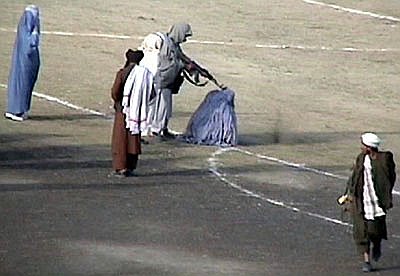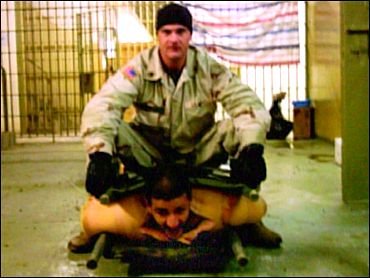Cpt. Rishwat
T20I Captain
- Joined
- May 8, 2010
- Runs
- 44,197
West can never pull out of the Middle East
richard spencer
Whatever our leaders say, British and American forces will always have a presence in the region
The vote was decisive and critical: parliament would not support military action in Syria. Forget the chemical weapons attacks, the barrel bombs, regime death squads and the threat of jihad, Britain had had enough of foreign entanglements. No more could we tolerate the stigma of RAF bombers hitting civilian targets, or British troops dying from roadside mines and snipers’ potshots. The Syria vote of August 2013 humiliated David Cameron and his foreign secretary, William Hague, but seemed popular around the country. There are few street protests in favour of war.
MPs and the public back then might have been surprised to learn that, six years later, RAF jets have been conducting large-scale aerial campaigns over Syria, and that British soldiers are still roaming the Syrian deserts. Yet that is the case. Our troops, mostly special forces, have been there for years now — another “endless war” that hasn’t ended even after President Trump’s “bring them home” announcement last month.
They might have been surprised but they shouldn’t have been, for it is a pattern that is constantly repeated. “There will be no return to Afghanistan”, read the headlines in 2014, as Mr Cameron pledged to end Britain’s involvement in the conflict 13 years after British forces went in. Fast forward to June last year and The Times carried the headline “Afghan chief in plea for British troops”, followed a month later by the announcement that 400 more were on their way.
Over in the United States, pacifist braggadocio has become an election selling point, which is odd for a country which maintains 11 aircraft carrier fleets around the world. What are they to do under President Trump’s electoral promise of “America First”? Mr Trump has now been echoed by at least two of his main Democratic challengers. Bernie Sanders, in response to Mr Trump’s Syria announcement, reminded voters that he was the original pacifist. “I am a strong opponent of endless wars,” he said. Elizabeth Warren went further. She has demanded that the US “get out of the Middle East” altogether.
And who can blame them, after all this time, and after all the lives lost in Afghanistan, Iraq and their destabilised neighbours? The only hint that things might not be so simple is when you consider that Sanders statement. Who, does he imagine, stands for an election as a strong proponent of endless wars?
Luckily, we have an answer from recent history to the aircraft carrier question, at least. President Obama spent eight years trying to live up to his own promise to extricate America from the Middle East. He boldly refused to bomb Syria, in defiance of some of his own advisers, he refused to back American allies, like President Mubarak of Egypt, when they used force against their own people, and above all he acted on his pledge to pull troops out of Iraq. In his Nobel Prize-winning “speech to the Muslim world” in Cairo in 2009, he used words very similar to Bernie Sanders to express his opposition to regime change wars. Mr Sanders’s manifesto pledges that his administration would “clarify its commitment to democratic values abroad”, while also “working collectively with allies to address shared security concerns”. This all sounds great but what if your allies are Egypt and Saudi Arabia?
Within three years of Mr Obama pulling out of Iraq, US troops were back (along with the British). A year later, Saudi Arabia went to war in Yemen. By that time, jets flying from all those US aircraft carriers were bombing Syria anyway. Where Assad’s sarin attacks failed, Islamic State’s atrocities succeeded.
This serial failure is not just happenstance. From the dismantling of the Ottoman Empire by the British and French, through the rise of the house of Saud, to the establishment of the state of Israel, western countries have been embedded for good or ill in the security infrastructure of the Middle East. For good or ill: most people, both in the Middle East and in the West, might say for ill but embedded we are, and when we pledge withdrawal even those words alone create opportunities for the most agile (and invariably most brutal) regional actors to exploit.
The immediate victims are often vulnerable minorities and it is notable that some of the loudest western voices in support of the Middle East’s Christians, Yazidis and Kurds have also been the most hostile to “western intervention”: how do they think these communities will be protected? In the longer term, the very unpopularity of western allies like Saudi Arabia and Israel is a reflection of their importance to our own concerns. We may not like the way their governments operate but it seems unlikely that our absence would make them more likely to behave in ways that enable the West to “focus on our core interests”, as Mr Sanders wants.
The demand to end endless wars is similar to that other great populist cry, to just “get Brexit done”. In both cases, the populism is rooted in a reasonable prejudice. You do not have to be a pacifist to decry the impulse to change other countries’ regimes, just as diehard Remainers can still be uncomfortable with the corporatisation of power that the EU so often seems to represent. But, as we know, announcing an exit and finding the door are very different things.
https://www.thetimes.co.uk/article/west-can-never-pull-out-of-the-middle-east-qxvxrrbx6
I read it this morning but didn't really understand what is the West's commitment to the middle east. Seems to be saying if it wasn't for the west, then lots of nasty people would be inflicting misery on other people in the middle east.
How is that our responsibility?






 )
)



